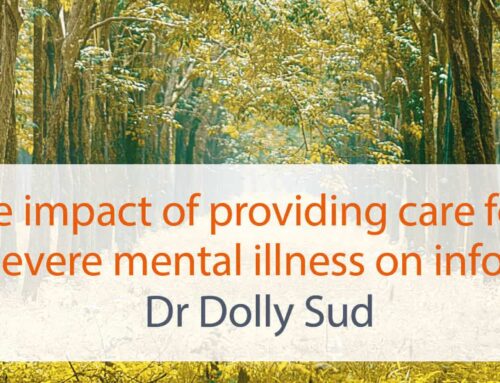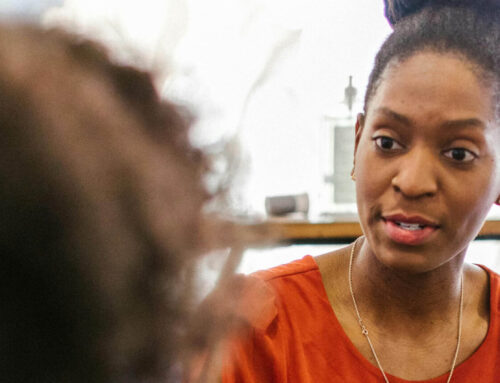
A core value of Equally Well is to ensure that the physical health of anyone living with a mental health diagnosis is not overlooked. Leicestershire Partnership Trust has found an innovative way to approach this issue for people staying on in-patient wards.
In 2019 a GP-led Physical Health Clinic was started with the support of a Physical Health Nurse Lead. The idea for the clinic began whilst I was leading a teaching scheme for GP trainees during their psychiatry placements. We met each week and increasingly I was being asked for my opinion and support with physical health problems that are the bread and butter of general practice. From this, the idea of the GP Physical Health Clinic was born. Fortunately, there was already a dedicated Physical Health Nurse who had been appointed by the Trust and we agreed to work together to improve the physical health of the patients on the ward.
The clinic initially aimed to see anyone who had a chronic medical problem which might be taken to a GP if they were in the community. Almost immediately we were getting 4-5 referrals a week. Unlike in routine general practice we were able to allocate 30–45-minute appointments to see people.
Three key factors told us quickly that we had found an important way to help people:
- As an independent GP and nurse, we were separate from an individual’s regular GP who patients sometimes did not have a good rapport with. This made it easier to focus on their chronic and in many cases, previously undiagnosed physical health issues
- We were not their psychiatrist and therefore they knew it was protected time to focus solely on their physical health
- We were acting in the ‘golden moment’ – patients had to be stabilising from their acute mental illness to come to the clinic. This meant they were able to concentrate on their physical health.
In 2020, despite being in its infancy, we had to adapt as the Covid-19 pandemic hit. Like many services, we were able to offer support to the ward teams via email and phone, which worked well as an interim substitute.
We have received a wide variety of physical health referrals over the two years we have been running the service. The most common presentations and referrals to our team include diabetes, asthma, COPD, hepatic issues, dermatology, sexual health and contraception. We have also been involved in the identification of cancers, complex neurological conditions and gastroenterological conditions. Nurses, junior doctors and the ward consultants are keen to seek involvement from our team when faced with patients presenting both with mental and physical health problems. We have been involved in joint ward rounds and been able to support with a variety of enquiries around referral pathways and further investigations for physical health.
Our involvement has grown rapidly across all aspects of the service. We are now an integral part of the governance structures of the organisation. We have developed local physical health policies and standard operating procedures to improve the quality of physical health standards for the Trust. We are involved in steering groups, task and finish groups, clinical excellence and training groups.
With the evolution of the pandemic, we have now gone back to seeing patients directly on the wards. Due to the number of people who wish to see us, we have opted for being able to see patients in their own surroundings as more of a roving ward round.
The Trust agreed to expand our team, recognising the complexity and needs on the wards we serve. We now have three additional RGN’s and a health care assistant for the adult unit. Due to the impact of the model on care, the Trust decided to employ a GP for the learning disabilities unit and a GP for the older persons in-patient units. We also have a physician’s assistant who is joining our team for older persons as well. This growth in our team reflects and represents increased awareness of the physical health needs of the patients on the in-patient wards.
There is still a lot to achieve. Often, when I tell people about what we do, they respond with ‘how has this not always been a thing!’ It seems such a simple initiative, that naturally speaks to the skill set of a GP. It makes a real difference to patients and the ward staff. We would actively encourage all units to look at how they could achieve something similar.






